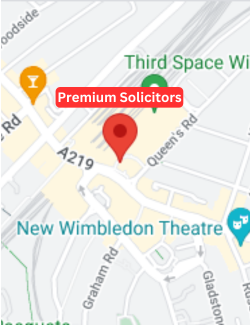Long residence applications include applications for ILR based on 10 years of residence, further leave to remain applications based on 10 years of residence, and applications based on 20 years of residence. The immigration rules on long residence recognise the importance of ties a person may form with the UK over a lengthy period of residence in the UK.
Free Immigration Advice For Long Residence Applications
Our specialist team of immigration solicitors can provide one-off free immigration advice online regarding your application based on long residence. Ask a question online to our specialist team of immigration solicitors for free immigration advice online, or book an appointment online for detailed immigration advice and consultation with one of our immigration solicitors regarding your application based on long residence.
Specialist Immigration Solicitors For Long Residence Applications
Our immigration solicitors are specialists for applications based on long residence. As one of the best long residence solicitors, we have successfully helped thousands of clients with their applications for a stay in the UK, including permanent stay based on long residence. Our highly experienced and fully qualified long residence solicitors can provide fast, friendly, reliable and fixed-fee immigration advice and legal representations for your application based on long residence.
Premium Solicitors are specialist UK immigration solicitors and the high quality of long residence visa services provided by our best team of fully qualified and experienced long residence solicitors is self-evident from the 5-star Google Reviews rating by 99% of our clients.
Applications Based On Long Residence
As specialist long residence solicitors, we can provide fast, friendly and reliable fixed-fee legal services for the following applications based on long residence in the UK:
- ILR - 10 Years Long Residence
- Further Leave To Remain - 10 Years Long Residence
- 20 Years Long Residence
FAQs - Long Residence Applications
Following are the various frequently asked questions (FAQs) about long residence applications in the UK:
The long residence applications include an ILR application based on 10 years of residence, a further leave to remain application based on 10 years of residence, and applications based on 20 years of residence.
Before 9 July 2012, it was possible to grant ILR under the long residence provisions after 14 years of continuous residence, but that provision was removed by changes to the Immigration Rules on 9 July 2012. Therefore, it is no longer possible to apply for ILR after 14 years of residence since 2012.
You can challenge the refusal of your long residence application by filing an appeal to the First Tier Tribunal (FTT) within 14 days of the refusal decision. If your human rights claim based on long residence has been certified as manifestly unfounded and you have not been given an in-country right of appeal, you can challenge the certification decision by way of Judicial Review.
The 10-year-long residence is based on continuous and lawful residence in the UK for 10 years. In contrast, the 20-year-long residence is a continuous residence for 20 years, whether lawfully, unlawfully or a combination of both lawful and unlawful residence. As a result of 10 years long residence, the applicant is normally granted Indefinite Leave to Remain (ILR). In contrast, based on the 20-year-long residence initial application, the applicant is granted 30 months leave to remain under the 10-year route to settlement.



